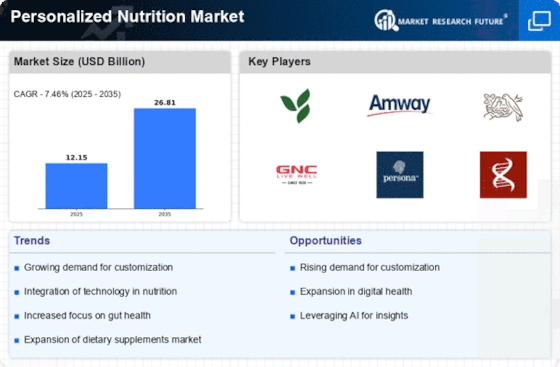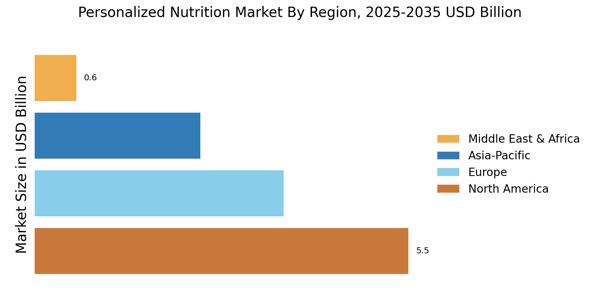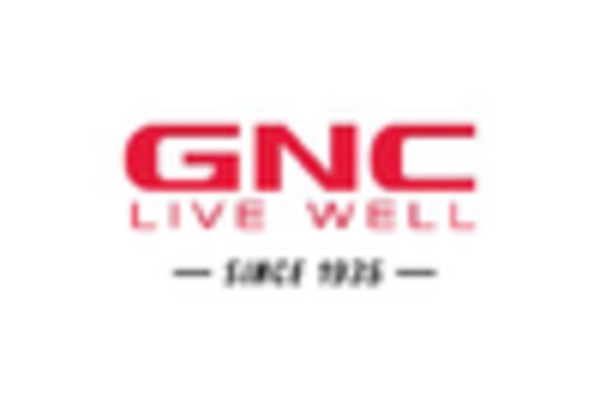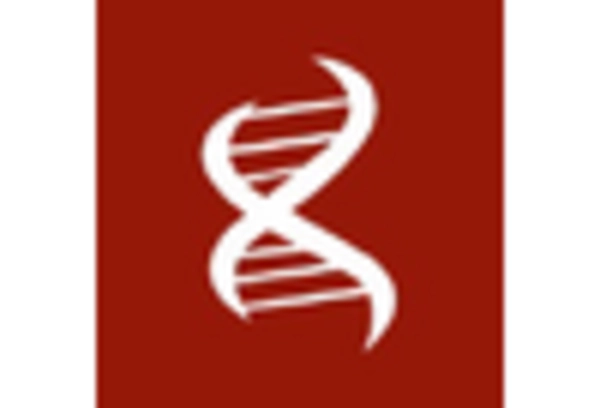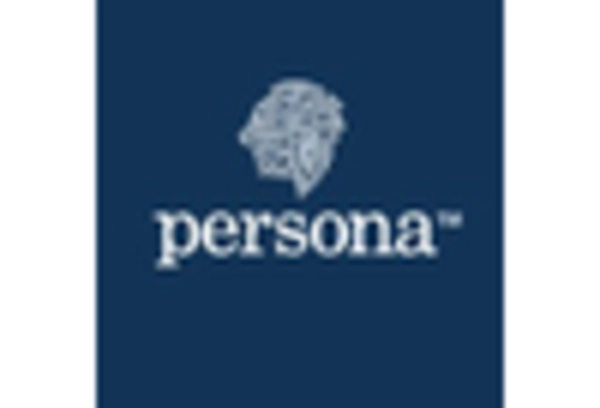Rising Health Awareness
The increasing awareness of health and wellness among consumers appears to be a primary driver for the Personalized Nutrition Market. As individuals become more conscious of their dietary choices, they seek tailored nutritional solutions that align with their specific health goals. This trend is reflected in the growing demand for personalized supplements and meal plans, which are projected to reach a market value of approximately 11 billion dollars by 2026. The shift towards preventive healthcare, coupled with the desire for improved quality of life, suggests that consumers are more inclined to invest in personalized nutrition solutions that cater to their unique needs.
Advancements in Technology
Technological advancements play a crucial role in shaping the Personalized Nutrition Market. Innovations such as artificial intelligence, machine learning, and genetic testing are enabling the development of highly customized nutrition plans. These technologies facilitate the analysis of individual health data, allowing for more precise dietary recommendations. The market for personalized nutrition technology is expected to grow significantly, with estimates suggesting a compound annual growth rate of over 15% in the coming years. This technological integration not only enhances consumer experience but also drives the demand for personalized nutrition products and services.
Rise of E-commerce Platforms
The rise of e-commerce platforms has transformed the way consumers access personalized nutrition products. The Personalized Nutrition Market is witnessing a surge in online sales, as consumers prefer the convenience of shopping from home. E-commerce allows for a broader reach, enabling companies to offer personalized nutrition solutions to a wider audience. Data suggests that online sales in the nutrition sector are expected to account for a significant portion of total sales, with estimates indicating a growth rate of over 20% in the next few years. This shift towards online shopping is likely to enhance the visibility and accessibility of personalized nutrition offerings.
Increased Demand for Convenience
The fast-paced lifestyle of modern consumers has led to a heightened demand for convenience in food and nutrition. The Personalized Nutrition Market is responding to this trend by offering ready-to-eat meals, meal kits, and on-the-go nutritional products that cater to individual dietary preferences. As consumers prioritize convenience without compromising on health, the market for personalized nutrition solutions is likely to expand. Reports indicate that the meal kit delivery service sector alone is projected to reach a valuation of 19 billion dollars by 2027, highlighting the potential for personalized nutrition offerings that align with consumer convenience.
Growing Interest in Preventive Health
The shift towards preventive health measures is significantly influencing the Personalized Nutrition Market. Consumers are increasingly seeking nutritional solutions that not only address existing health issues but also prevent future ailments. This proactive approach to health management is driving the demand for personalized nutrition products that are tailored to individual health profiles. The market for preventive health solutions is anticipated to grow, with projections indicating a potential increase in consumer spending on personalized nutrition products. This trend underscores the importance of personalized nutrition in fostering long-term health and wellness.


